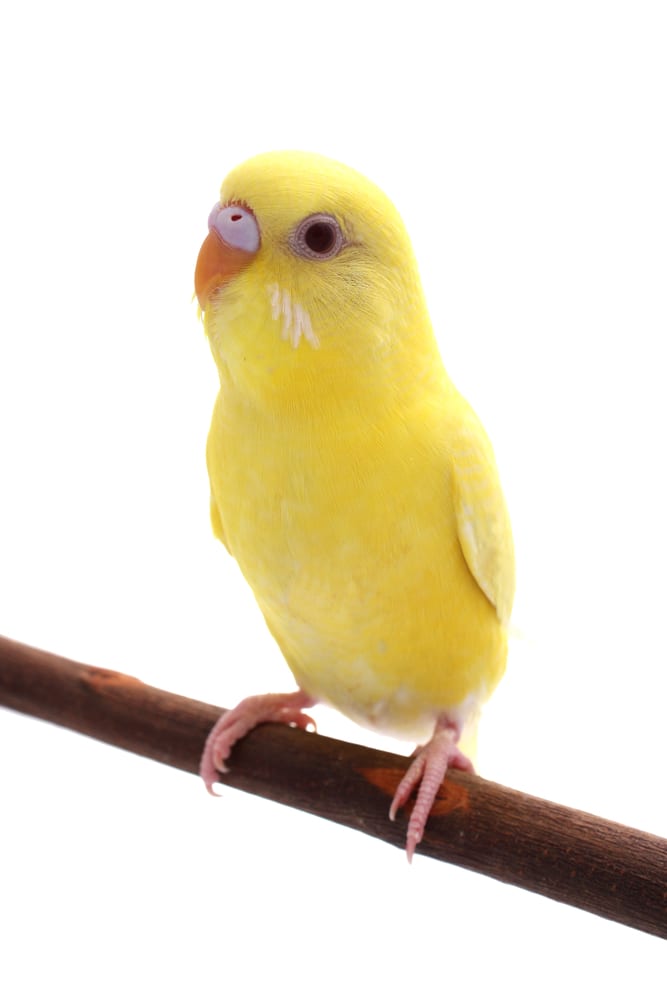So you’ve decided to adopt a bird — congratulations! After you’ve selected the right bird for your lifestyle and living space, you can focus on the essentials you’ll need in order to create an environment in which your new pet bird will thrive.
 A cage is one of the most important purchases you’ll make for your bird. As wild creatures, birds need ample room to stretch their wings and perch comfortably. Some birds have long tails that need accommodating, others enjoy flying back and forth, some enjoy hanging upside down and playing — it’s vital that you take all these personality and behavioral traits into consideration as you’re shopping for a new cage. A good rule of thumb is to buy the largest birdcage you can afford and accommodate, provided it meets the spacing guidelines below.
A cage is one of the most important purchases you’ll make for your bird. As wild creatures, birds need ample room to stretch their wings and perch comfortably. Some birds have long tails that need accommodating, others enjoy flying back and forth, some enjoy hanging upside down and playing — it’s vital that you take all these personality and behavioral traits into consideration as you’re shopping for a new cage. A good rule of thumb is to buy the largest birdcage you can afford and accommodate, provided it meets the spacing guidelines below.
Now that you’ve found the right size cage, you need to evaluate the bar spacing. Bars spaced too far apart can tempt your bird to wedge their head through the bars (or escape altogether). Small birds, like finches, canaries, budgies, and lovebirds, need bar spacing to be 5/8” or less while cockatiels, conures and senegals can be safe with spacing 1/2” to 7/8”, depending on their size. In addition to bar spacing, you need to evaluate the security features of a cage. Some birds are amazingly cleverly and mechanically inclined, meaning they can easily slide open a door or pry the locking mechanisms apart. Lastly, evaluate the layout of horizontal bars to ensure adequately spaced footholds for the bird who loves to climb.
Resist the temptation to use an antique, decorative, or used bird cage. Decorative cages might be beautifully ornate but few of them are designed for use with live birds and may be unstable, dangerous, and possibly toxic, depending on the types of materials used. Use caution when buying cages imported from other countries as well. Birds are extremely sensitive to lead and other toxic metals and many countries don’t follow the same guidelines we do in the U.S. about avoiding such materials.
Once you’ve found the perfect cage, it’s important to find just the right spot for your bird to reside. Ideally, the cage should be away from the kitchen (and the numerous hazards that abound there), far from drafty doors and windows as well as blinds and electrical cords, and in a place where they have a suitable view. Some pet owners surround the cages with bird-safe houseplants or situate them in an area where they can watch television or view outdoor wildlife.
Your veterinarian will recommend that you carefully monitor your bird’s weight to ensure they are in good health. A gram scale is a great tool to have on hand for those purposes. Appropriate lighting is also key. Since most birds reside indoors, they rarely get the natural light that they need for optimal health. Air Filters are another strong recommendation, removing the dander and dust created by your bird while protecting them from harmful pollutants inside your home.
Other supplies you’ll need include a water bottle and crocks for fresh water and food, tray paper to keep their cage clean, a suitable perch, appropriate treats and food, and an arsenal of bird toys. Birds are naturally curious and require considerable stimulation; having a selection of toys enables you to rotate toys to provide ample variety.
Lastly, schedule a visit with your veterinarian within the first week after you bring your bird home. Birds are masters at disguising their health issues so it’s essential that you partner with a veterinarian to keep a watchful eye on your new family member. They will help provide tips on bird-proofing your home, provide important dietary recommendations, check your bird’s weight, and perform a physical evaluation to detect any abnormalities and potential health concerns. Make sure to plan for annual checkups as well.
We hope you that being a bird owner will fill your home and heart with joy. Armed with the right information and supplies, you’re ready to take flight in the adventure of bird ownership.

